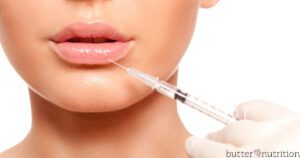 Multivitamins are at the core of mainstream nutrition, but the longer I work in the nutrition field, the more I think they're a part of the problem and not the solution.
They're pushed as an "insurance policy" for extra nutrients to fill in an otherwise non-optimal standard American diet, which sounds like a good approach, right? I mean, who doesn't feel safer with insurance?
Multivitamins are at the core of mainstream nutrition, but the longer I work in the nutrition field, the more I think they're a part of the problem and not the solution.
They're pushed as an "insurance policy" for extra nutrients to fill in an otherwise non-optimal standard American diet, which sounds like a good approach, right? I mean, who doesn't feel safer with insurance?
Most people take one for the following reasons:
- It makes them feel better about eating a less than stellar diet (truth: you can't out-supplement a poor diet)
- It makes them feel like they are increasing their health in a positive way (truth: this has NOT been confirmed by science)
- An authority figure recommends it, and they fear what will happen if they DON'T take one [truth: making decision out of fear is rarely the best choice]
Are multivitamins worth it?
In reality, even those who eat very healthily feel compelled, if not required to take them. Multivitamins have become a fear-based automatic habit. One that often doesn't fit the individual's needs... And if it doesn't fit your individual needs, is it possible it may be harming more than it's actually helping? That's exactly what I want to talk about today, so you can better evaluate your supplement plan going forward and see if your multivitamin is actually doing you any favors..Beware of these in your multivitamin...
Beyond the often poor ingredient quality and non-therapeutic effect of multivitamins, there are some bigger problems to be aware of...1) Vitamin D
Almost all multivitamins contain synthetic vitamin D3 which is a fat soluble vitamin and technically a hormone. Vitamin D supplementation tells your body to absorb more calcium from your food, so the presence of vitamin D in the bloodstream means that the person taking vitamin D supplements is going to absorb more calcium from their food than someone who isn’t taking vitamin D supplements. Interesting, right? So perhaps if you have low calcium levels, a little vitamin D might not be a huge problem. But what if you already have high calcium levels and don't even know it? Taking vitamin D, especially in higher doses can create chronically high calcium levels. Over time, it can lead to calcification of your body (like back pain, joint issues, osteoporosis). [7] Bottom line: find out what your body needs before blindly popping vitamin D3 supplements (hint: testing, vitamin D co-factors, natural sunlight).2) Calcium
While you can find calcium abundantly in dairy products, bony seafood (think sardines), almonds, and leafy greens; calcium supplementation is still popular. Old-school nutrition knowledge is that calcium builds strong bones, but neglects to emphasize the other nutrients that are just as important in the process, namely — magnesium, vitamin K2, boron, and vitamin D. The research on calcium supplementation is not so great. A 2007 study in the American Journal of Clinical Nutrition found that:"Pooled results from prospective cohort studies suggest that calcium intake is not significantly associated with hip fracture risk in women or men. Pooled results from randomized controlled trials show no reduction in hip fracture risk with calcium supplementation, and an increased risk is possible." [17]And a 2017 study found:
"...a rising body of evidence on the adverse effect of calcium supplementation on non skeletal, especially cardiovascular, health has been a cause for concern." [3]And while we're at it, it's important to point out that Vitamin D + calcium supplementation can create a perfect storm for increased calcium levels in the body. Bottom line: calcium from food is your friend, supplements may not be.
3) Vitamin A and Beta Carotene
What's the problem with Vitamin A and Beta Carotene? For starters, be aware that vitamin A toxicity is a real thing. Vitamin A has been long touted as a nutritional superstar, although it’s found in almost all foods but most abundantly in a whole foods diet. By policy, it was added to low-fat milk products in 1970’s. It’s also found in multivitamins, supplements (like cod liver oil), skin creams (especially anti-aging creams), sunscreen, and pharmaceutical drugs (like Accutane). [5,9] Depending on your health history of the above, vitamin A toxicity or excess may impact you, perhaps at much lower dosage levels than reported in scientific literature. [10] You see, 90% of vitamin A is stored in your liver, and released into the bloodstream on a as-needed basis. But what happens when your liver’s storage capacity is full? When the liver is already overwhelmed by vitamin A, it accumulates in tissues and fat storage leading to systematic inflammation, most specifically noted in changes to the skin, bones, and vision. [5] Vitamin A is also known to be teratogenic — capable of causing developmental malformations:"High dietary intake of preformed vitamin A appears to be teratogenic. Among the babies born to women who took more than 10,000 IU of preformed vitamin A per day in the form of supplements, we estimate that about 1 infant in 57 had a malformation attributable to the supplement." [12]Bottom line: vitamin A deficiency is rare in developed countries and vitamin A toxicity can lead to quite a lot of issues.
4) Iron
Iron is one of those tricky minerals that you don't want to have too much or too little of... If you have too little iron you're at risk for iron deficiency anemia which is associated with fatigue, dizziness, pale skin and shortness of breath, among others. Those who are the most at risk for anemia are menstruating women, vegetarians and those who donate blood frequently. [14,15] Excess iron on the other hand acts as a rusting agent in your body and can accumulate in tissues, particularly in the liver, pancreas, heart, joints and the brain. This speeds up the aging process and puts you at a much higher risk for vascular disease, cancer, and a shortened life expectancy. Iron overload is also linked to liver disease, cardiovascular disease, gout, infertility, hypothyroidism, and a very long list of others, making it essential for you to know your iron status. [13] Bottom line: know your iron status before supplementing with iron.5) Copper
Supplementing with copper when you already have too much can cause big problems, particularly for the liver and your mental health. Copper is a mineral, a metal and an essential nutrient that impacts neurotransmitters in the brain. Specifically, copper lowers dopamine levels (think pleasure and reward centers in the brain) and increases the neurotransmitter norepinephrine, which acts as a stress hormone. Getting too much copper can decrease energy levels though adversely impacting thyroid activity, as well as mental well-being. Other symptoms include:- irritability
- hyperactivity
- academic underachievement
- skin sensitivity to rough fabrics and metals
- sensitivity to food dyes
- sleep issues
- high anxiety
- ringing in ears
- adverse reactions to copper (including multivitamins, chocolate, shellfish)
- estrogen intolerance
- poor stress control
- premature graying of hair
- abnormal menstrual cycles
- hair thinning/loss
- depression and postpartum depression
Multivitamins: Enough is Enough
According to a 2013 article in the Annals of Internal Medicine, the debate about supplements should be over:"In conclusion, β-carotene, vitamin E, and possibly high doses of vitamin A supplements are harmful. Other antioxidants, folic acid and B vitamins, and multivitamin and mineral supplements are ineffective for preventing mortality or morbidity due to major chronic diseases. Although available evidence does not rule out small benefits or harms or large benefits or harms in a small subgroup of the population, we believe that the case is closed- supplementing the diet of well-nourished adults with (most) mineral or vitamin supplements has no clear benefit and might even be harmful. These vitamins should not be used for chronic disease prevention. Enough is enough." [6]A 2007 study in JAMA had similar findings:
"Treatment with beta carotene, vitamin A, and vitamin E may increase mortality. The potential roles of vitamin C and selenium on mortality need further study." [16]
Stop taking supplements that you don't need
That's why I'm a big fan of skipping the multivitamin approach with my clients and taking a real-food supplement approach. You can learn more about my approach by watching the video below:- Avoid GMOs and non-organic foods that are contaminated with herbicides that are known to chelate mineral levels (specifically iron, cobalt, molybdenum, and copper) [8]. Eating organic and avoiding GMOs is the best way to reduce your intake of synthetic herbicides like Glyphosate.
- Use testing to identify any nutritional deficiencies and use food + very small amounts of supplementation if needed for short periods of time to address any deficiencies.
- Always listen to your body in the process and pay attention to how you feel whenever you introduce new foods or supplements.
Are multivitamins worth it to you? Please share in the comments!
 References:
References:
- https://mthfrgenehealth.com/mthfr-fqs/
- https://www.mthfrsupport.com.au/folic-acid-vs-5-mthf-debate/
- https://www.ncbi.nlm.nih.gov/pubmed/28466573
- https://ebm.bmj.com/content/ebmed/1/4/124.full.pdf
- https://ggenereux.blog/wp-content/uploads/2016/10/extinguishing-the-fires-of-hell2.pdf
- https://annals.org/aim/fullarticle/1789253/enough-enough-stop-wasting-money-vitamin-mineral-supplements
- https://academic.oup.com/cardiovascres/article/36/3/293/298591/Hypercalcemia-and-metastatic-calcification
- https://www.ncbi.nlm.nih.gov/pmc/articles/PMC3945755/
- https://ggenereux.blog/
- https://www.ncbi.nlm.nih.gov/pubmed/16469975
- https://www.merriam-webster.com/dictionary/teratogenic
- https://www.nejm.org/doi/full/10.1056/NEJM199511233332101
- https://chriskresser.com/iron-behaving-badly-the-role-of-iron-overload-in-metabolic-disease/
- https://www.webmd.com/a-to-z-guides/understanding-anemia-symptoms
- https://www.mayoclinic.org/diseases-conditions/iron-deficiency-anemia/symptoms-causes/syc-20355034
- https://jamanetwork.com/journals/jama/article-abstract/205797
- https://academic.oup.com/ajcn/article/86/6/1780/4649830
- Walsh, William J., PhD: Nutrient Power: Heal Your Biochemistry & Heal Your Brain, 2014.
- https://www.traceelements.com/Docs/Nutrient%20Interrelationships-Minerals-Vitamins-Endocrines.pdf
- https://www.traceelements.com/Docs/The%20Nutritional%20Relationships%20of%20Copper.pdf






marcus flores says
i do not agree and i am terminating my subscription.
regards.
Marcus.
Catherine says
Thanks Marcus for joining the conversation!
Please feel free to share all your opinions and thoughts so we can have a good discussion.
Abundantly,
Catherine
Helen says
I agree with your position on whole food diets; however, I disagree with your recommendation to eat non-GMO and organic food only. Studies have explored the foolish fail-safe many bring your own bags to the farmers market believe. There is very little difference for many vegetables in the organic vs. Nonorganic. In fact, organic farming has been proven to create a whole slew of environmental hazards in dangerous byproducts, namely a huge excess of nitrogen waste run-off. Our country has been steered blindly towards the grocery store crooks and now your average person is helpless and has had their food autonomy stripped. You must live in a castle flowing with acres of green. Not everyone lives that way, nor can they afford the exorbitant prices at Whole Foods. I stopped reading your posts for a long while because it seemed you were pumping the hair analysis. I opened this one, but sadly, I am disappointed. I have a medical condition where I do not absorb nutrients and have had about a foot of my colon cut out, an ostomy bag, which was a nightmare to deal with, and my teeth breaking off for decades. I don’t drink soda, rarely do I drink alcohol, and all doctors want to do is prescribe chemicals that cause more problems. I use the right oils, healthy bitter, limited meat, cool from home most days. Bake from scratch, avoid too many carbs. It seems all the experts have oír heads spinning with what’s good and/or bad for us.
Penny says
I agree. I have magnesium and b- vitamins personally. I am extra cautious about not causing more issues and try for dense nutrient foods first . For years I had supplements but then I Found out I had MTHFR and realised I’d been poisoning myself. I had horrible nausea with two kids and it actually turned out to be the pregnancy supplements. I ran out and the nausea went away.. I think this article is great for making us aware that they aren’t always 100% safe.